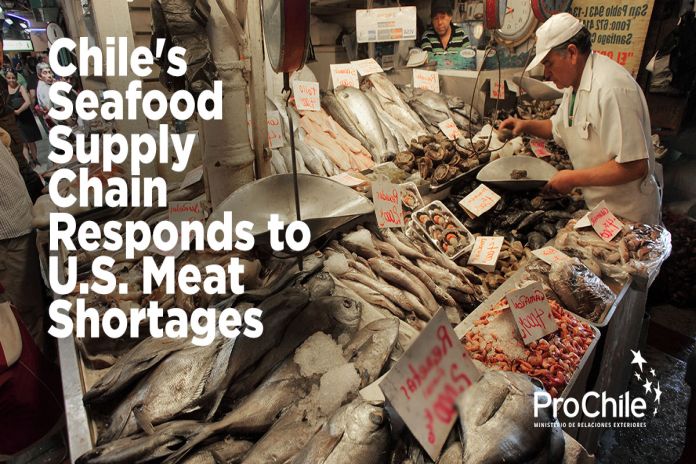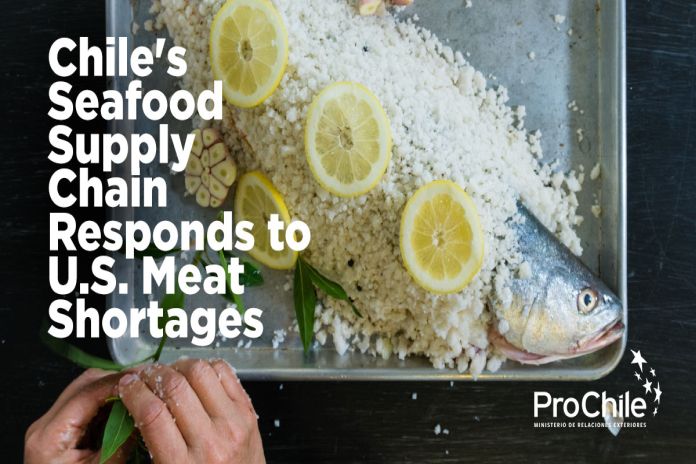SANTIAGO, Chile – Meatpacking plants in the United States have shut down due to a shortage of workers. Due to plant closures, farmers cannot sell their livestock to processors.
According to a statement from the White House, the closing of a single large meatpacking plant can result in the loss of ten million servings of beef per day. In the United States, grocery spending has surged as people stockpile food and shift to what is perceived to be safer food options. As the supply of beef, pork, and boneless chicken decreases, stores are witnessing an uptick in frozen and fresh seafood sales.

With the support of ProChile US, the Chilean Salmon Marketing Council (CSMC) launched a program titled “Salmon at Home” to encourage healthy eating, track sales data, and promote salmon consumption. According to CSMC’s most recent report, from March 1-31, 2020 the US seafood market dramatically pivoted from food service to retail. Within one month, restaurant sales dropped by a combined 60 percent while grocery sales increased by over 100 percent. Although restaurant sales have plummeted, seafood remains in high demand through online shopping services, delivery meal kits, and physical food retailers.
A rise in seafood consumption is beneficial for Chile’s seafood industry and consumers alike. According to the American Heart Association, red meats contain more saturated fats than fish. Omega-3 fatty acids found in salmon, sea bass, and trout can help reduce the risk of heart failure, coronary heart disease, cardiac arrest, and the most common type of stroke (ischemic). Fish consumption has also been linked to healthy brain development and improved mental health.

As the leading supplier of salmon and trout to the United States, Chile is committed to maintaining supply-chain functions amid the COVID-19 crisis. Thanks to the nation’s relentless efforts, US citizens will continue to enjoy their favorite Chilean seafood such as trout, mussels, sea bass, and salmon.





